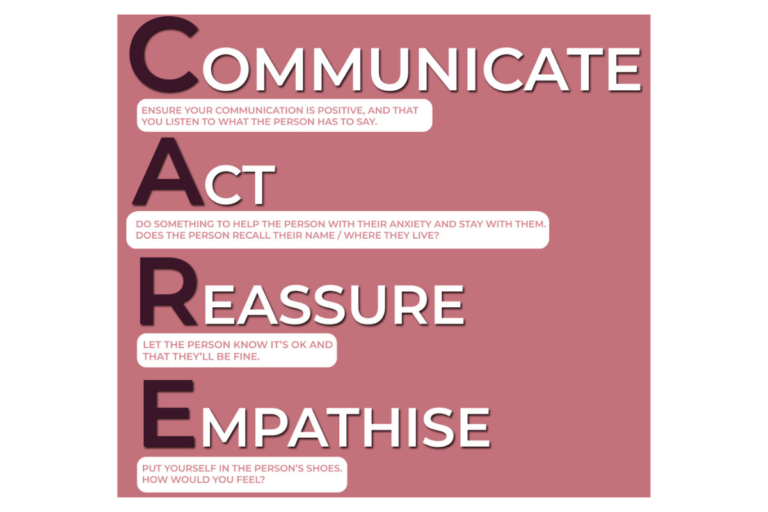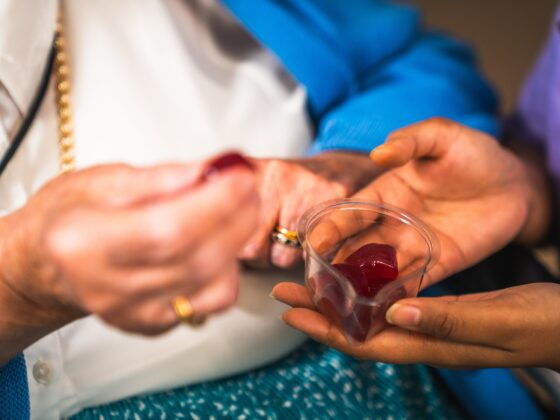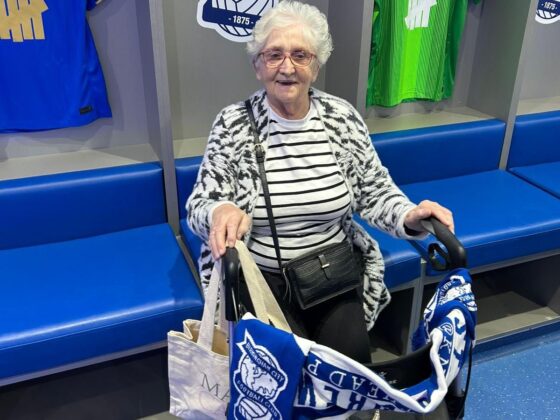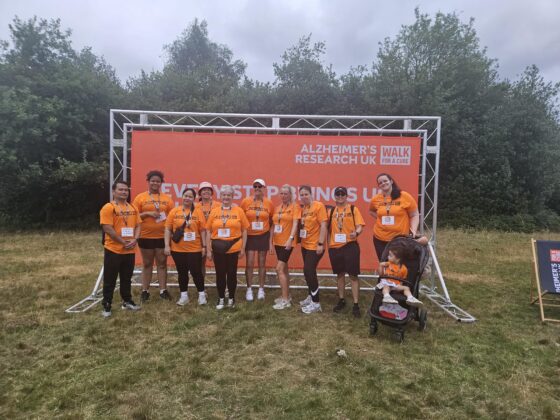Would you know how to help someone with dementia?
More than 70% of people with dementia go missing at least once1 .
A shocking statistic, but a true one.
And, with two thirds of people with dementia still living at home as opposed to in a care facility2, the chances of going missing are increased.
So, if you met someone with dementia in the street, who seemed lost and distressed, would you know how to help them?
At Macc Care, we’re looking to help.
How to Help Someone with Dementia: The Statistics
With a high number of people with dementia going missing, we wanted to work out, firstly, if people would be willing to help them and, secondly, if they would know what to do.
So, in September 2023, we used research company One Poll, to question 2,000 UK residents, asking them: “If you saw someone looking confused or lost in the street, who you suspected had dementia, would you approach them?” to which 59% responded they would be ‘likely’ or ‘very likely’ to do so.
Respondents were then also asked: “If you saw someone looking confused or lost in the street, who you suspected had dementia, would you know how to help them?”
Just 10% said they would know exactly how to help them, while 56% said they’d have a ‘rough idea’. A third (34%), said they would have no idea.
So these figures meant that, although people were willing to help – just one in ten were confident in what to do, and more than a third had no idea. So, we wanted to try and make it easier for them to know how to react.
This saw us come up with an acronym, C.A.R.E, where we encourage people to think: Communicate. Act. Reassure. Empathise.

How to Help Someone With Dementia: Think C.A.R.E
The thinking behind CARE is as follows, and it forms a basic checklist to help people both recognise and remember what to do:
C – Communicate. Ensure your communication is positive, and that you listen to what the person has to say – with the emphasis on two way communication.
A – Act. Do something to help the person with their anxiety and stay with them. Does the person recall their name / Where they live?
R – Reassure. Let the person know it’s OK and that they’ll be fine.
E – Empathise. Put yourself in the person’s shoes. How would you feel?
Helping Someone With Dementia
Through C.A.R.E, we’re hoping to emulate the success of F.A.S.T— the acronym that reminds people what to do when faced with potential stroke symptoms. And while a stroke and dementia are two very different illnesses, we want to help people in thinking quickly on the spot.
Deena Heaney MBE, our dementia lead at Macc Care, who has more than 30 years experience of caring for people living with dementia and who developed the CARE acronym, said: “With 70% of people living with dementia going missing at least once, the chances of encountering someone with dementia who is in need of assistance is higher than you might think.
“And, when you factor in that two thirds of people with dementia are still living in their own home as opposed to a care setting, the chances are even higher.”
She continued: “Our research has shown that, in this scenario, people are willing to help, but only 10% believe they would know what to do. This demonstrates the need for greater understanding and greater awareness of how to help.
“To aid in this, we’ve created a simple acronym to make it easy to remember. We want people to think C.A.R.E: Communicate, Act, Reassure, Empathise.”
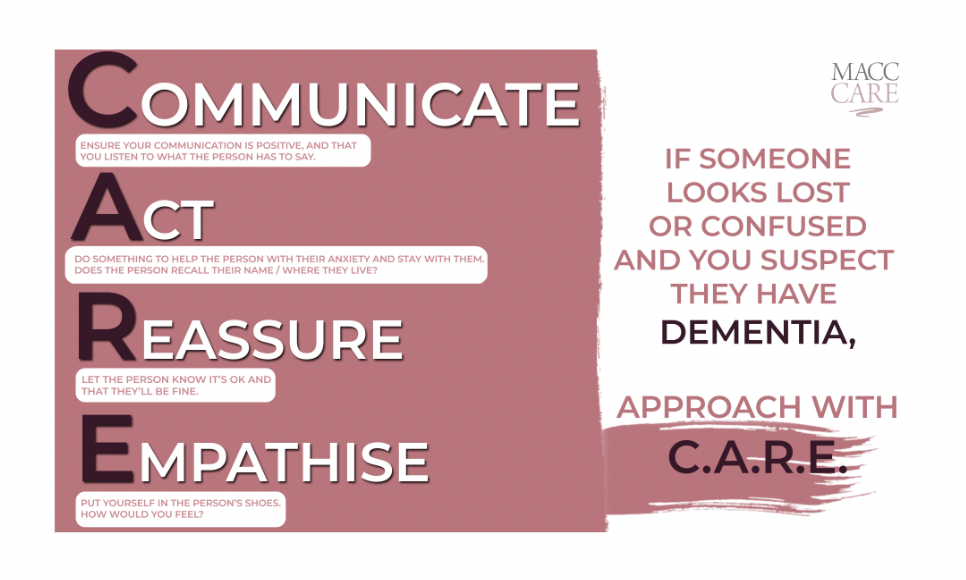
About Dementia
Dementia can affect people from practically any age and it means that, in everyday scenarios — such as visiting the shops — it’s possible to become confused, and potentially lost.
In these instances, people with dementia often rely on the kindness of strangers to put them on the right track. The C.A.R.E acronym is aimed at helping people react in a positive and helpful way, should they encounter someone who they suspect has dementia.
Take a look at our video, which explains the thinking behind the acronym, and outlines the help that can be given, here:
At MACC Care, we specialise in a range of care needs in the Midlands, including dementia care. To find out more about the care we offer, or to speak to a member of our team regarding our homes, please contact us.
Alternatively, why not read our previous blog to discover how we help our residents fulfil their bucket list wishes?
1 University of East Anglia (October 2020) https://www.uea.ac.uk/news/-/article/why-people-with-dementia-go-missing
2 Carers Trust (March 2020)

